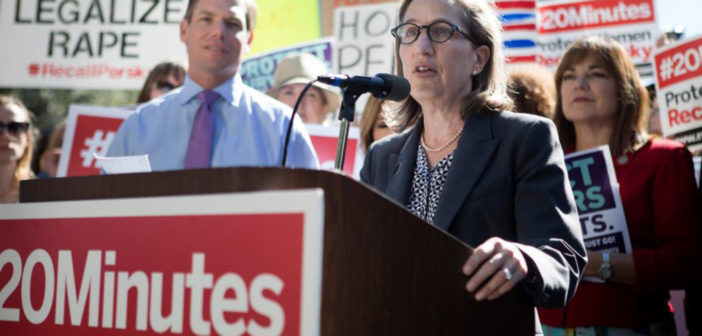[tribulant_slideshow gallery_id=”39″]
Recently, in a study of prosecutorial decision making by the Vera Institute of Justice, prosecutors are using their prosecutorial discretion inconsistently when prosecuting similar cases. In the 28 page report, the researchers go into detail about factors that have an impact on the judicature and how there are “considerable variation” in how individual prosecutors handled comparable cases.
The researchers have analyzed two county jurisdictions and looked at the legal impact of charging decisions, plea offers, sentence recommendations, and post-filing dismissal. The research found that the lack of financial resources, internal policies, or relationships to people within the legal justice system can contribute to prosecutorial inconsistency.
“These constraints—rules, resources, and relationships—could trump evaluations of strength of the evidence, seriousness of the offense, and defendant criminal history, forcing prosecutors to make decisions that they might not consider ideal,” said a researcher from the Vera Institute in the report.
“As a retired police officer I’ve dealt with the U.S. Justice system and I’ve seen a lot of things that have gone wrong over the years. Anytime you have the “human factor” involved you have bias, prejudice, hate, deceit, politics and power—and all of this seems to be influenced by the [almighty]dollar,” said Debra Mims, who is an assistant professor in criminal justice. “Basically, the U.S. justice system is directly associated with one’s ability to pay or not to pay, as the scales of justice are weighted by the amount of money placed upon them by the defense.”
These injustices have received more attention in recent years, since human rights activists started sharing cases that seem unjust all over social media. One example of that is the case of the Stanford University swimmer, Brock Turner, who was convicted on three felony sexual assault charges for raping an unconscious woman. He was sentenced to a six-month jail sentence in early June, with the possibility of release after three months. The prosecution had recommended six years in prison out of a possible fourteen, reported Quartz magazine.
A very similar case took place in Pennsylvania, where a 20-year old former West Chester University student got sentenced to six years in prison after he was convicted of raping an unconscious female student in her dorm room, reported the LA Times. The student, Kyle Vo, is an Asian-American, who was a Freshman at 19 years of age at the time.
Cases such as these show the inconsistencies in the justice system. The injustice of the Brock Turner case has even led to a petition that had been signed by over 100,000 people with the goal to fire the trial judge, Aaron Persky, who is a Stanford University alumni. Persky expressed concern, as shown in Quartz magazine, that a longer sentence might have a “severe impact” on the defendant. Upset about the sentence that seemed unjust, a Stanford law school professor started a campaign to recall the sentence.
Referring to the Brock Turner cases and the judge’s sentencing, Criminal Justice professor Joseph Cillo, who is also a former lawyer, said, “It was within the sentencing guidelines; judges have extreme discretion at the state level; [the judge]committed no judicial misfeasance or malfeasance.”
Cillo further commented on the sentencing of case being six months and whether it was appropriate or not without reviewing the absolute facts and testimonies.
“There was no judicial misfeasance or wrong doing on part of the judge,” said Cillo. “Not everyone likes every verdict; there are going to be somebody who does and somebody who doesn’t; that’s the nature of our system.”
The sentencing in the case of Turner seemed unjust to many and led to an open argument about the sentencing power that lies in the hand of a judge in this judicial system.
“There are five, maybe six, things that influence each and every judge when they write a decision or come to a verdict: the law, ethics, morals, society, economics, their re-electablity, if they’re state judges – federal judges, their term is for life – and the last things is what they had for breakfast, which mean their personal life: what’s going with them; are they having a good day; are they having a bad day,” said Cillo. “All these things influence a person beyond what you understand; it causes them to be distracted … emotionally, mentally [and]intellectually.”
There has even been a petition to initiate minimum sentences for heavy crimes like murder or rape, stated Quartz Magazine.
In the United States, sentencing varies by jurisdiction and state while it must conform with the U.S. Constitution as the supreme law. However, the Constitution only sets basic mandates, which leaves most of the policies up to each state. Many states have mandatory sentencing laws that remove discretion from the judge. These laws set minimum incarceration times for serious crimes or individuals with serious criminal records. However, the state has the discretion to pursue or waive the mandatory sentencing.
“I would change the Federal mandatory sentencing guide lines to allow judges to use their common sense when deciding on a downward departure from those guidelines,” said Cillo.
In the end, it comes down to the ability of the U.S. justice system under the constitution. The justice system has been created with the goal to find a fair and adequate sentence for people that have been convicted of a crime. The law constitution and state laws give a guideline for the seriousness of the sentence, but the judge still has the final word. Even though the study was created a few years ago, these two cases show that it is still relevant.





